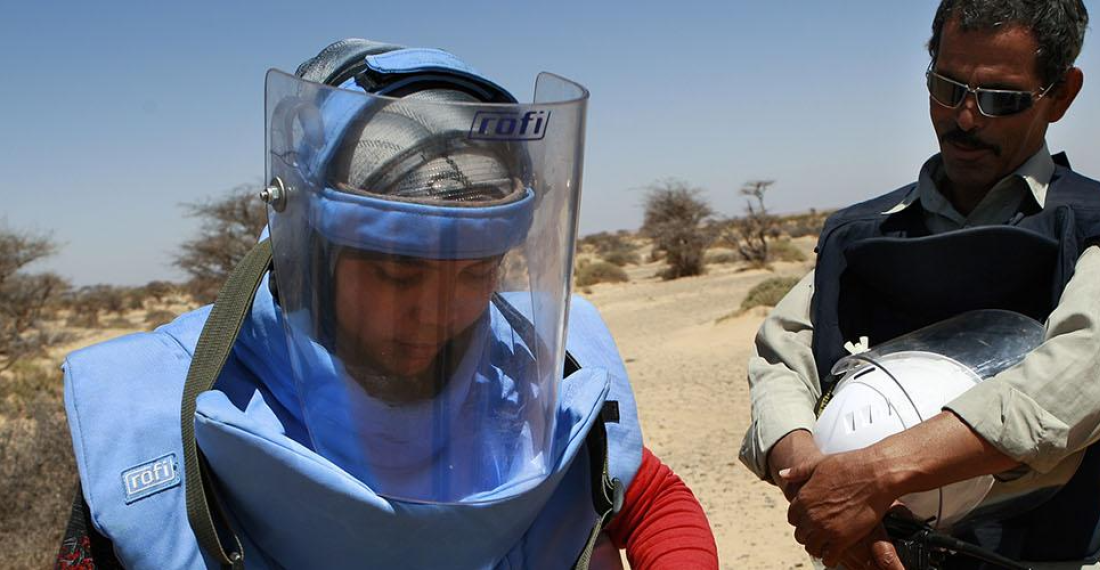The European Union's High Representative Josep Borrell and the United Nations Secretary General António Guterres have both released statements marking the International Day for Mine Awareness and Assistance in Mine Action on Tuesday (4 April).
In his statement, Josep Borrell said that the EU "reaffirms its strong commitment to preserving lives and mitigating the socio-economic consequences of the use of anti-personnel mines and explosive remnants of war, including improvised explosive devices", and outlined what the EU is doing to support demining around the world.
Alongside the recently announced €25 million sum to to assist Ukraine in their demining efforts, Borrell said that the EU has "contributed over €800 million to humanitarian mine action over the past 6 years, with €90 million in 2022 only", adding that it "supports various programmes in 20 mine-affected countries, such as Bosnia and Herzegovina, Ukraine, Syria, Lebanon, Libya, Burkina Faso, Somalia and Sri Lanka."
"With all its Member States being parties to the Ottawa Treaty, the EU supports the implementation of the Oslo action plan in all Parties, and is strongly united in banning the use, stockpiling, production and transfer of anti-personnel mines," Borrell said.
Click here to read the full statement.
"Broader global efforts are essential to safeguard people from mines."
In his statement, the UN Secretary General António Guterres said, "even after the fighting stops, conflicts often leave behind a terrifying legacy: landmines and explosive ordnance that litter communities. Peace brings no assurance of safety when roads and fields are mined, when unexploded ordnance threatens the return of displaced populations, and when children find and play with shiny objects that explode."
He outlined the work on the United Nations Mine Action service in gathering "partners together to remove these deadly weapons, support national authorities, and ensure safe access to homes, schools, hospitals and farmers’ fields", but said that "broader global efforts are essential to safeguard people from mines."
He urged UN Member States to ratify and fully implement the Anti-Personnel Mine Ban Convention, the Convention on Cluster Munitions and the Convention on Certain Conventional Weapons, and called for "action to end the threat of these devices of death, support communities as they heal, and help people return and re-build their lives in safety and security".
Click here to read the full statement.






